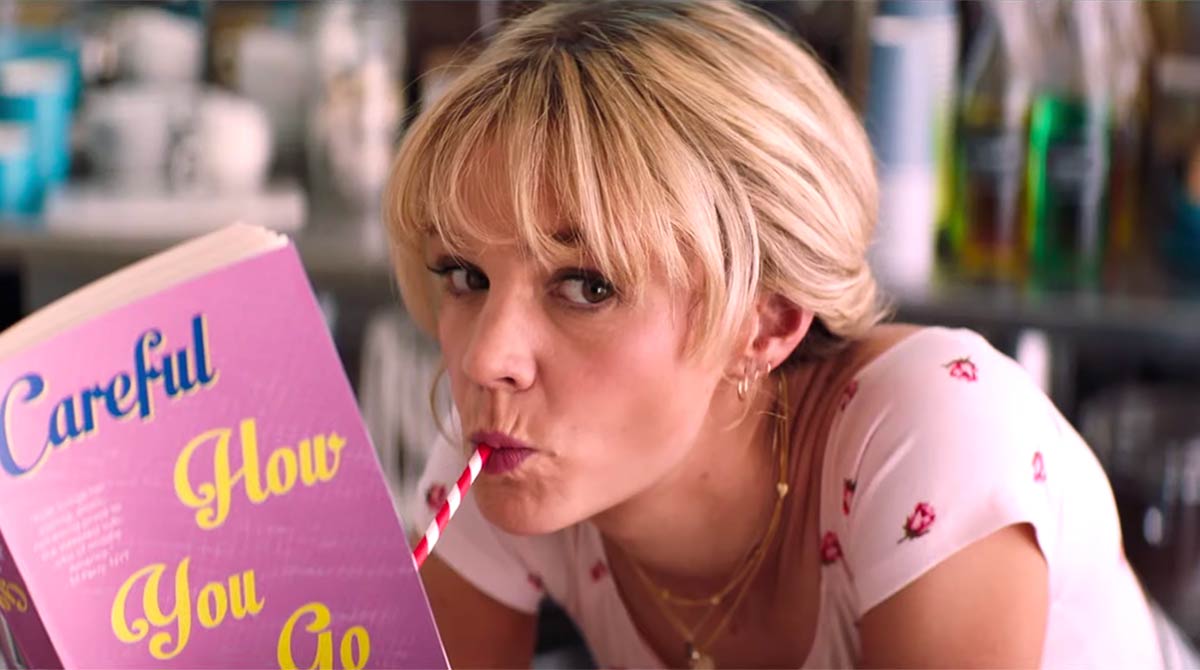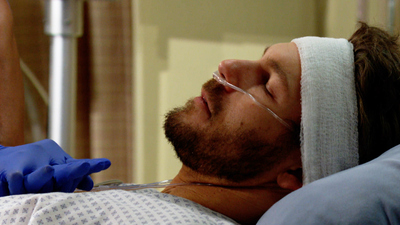What to Watch Verdict
'Promising Young Woman' earns "essential" acclaim as Carey Mulligan strikes fear into the hearts of predators in Emerald Fennell's gleefully condemning and painfully raw "women aren't objects" masterclass.
Pros
- +
📓 Carey Mulligan breathes fire.
- +
📓 No shying from harsh assessments.
- +
📓 Attitude and style for eons.
- +
📓 Leaves a lasting sting.
- +
📓 Bleak with purpose.
Cons
- -
📓 Some might argue "the swing."
- -
📓 Bleak with purpose (might not be your thing).
Promising Young Woman is currently only available to watch in theaters. Due to the COVID-19 pandemic, we recommend checking it out at your local drive-in. If one isn’t available, please be sure to check out state and CDC guidelines before watching in an enclosed space.
As someone whose formative years coincided with the rise of raunchy teen-sex comedies like American Pie, Road Trip, EuroTrip, and the like, I say this with emphasis: my generation needed more damning counterbalances like Promising Young Woman. The “debate” around conscious and unconscious decision making while blackout wasted, the ignorance of immaturity as an erasure of culpability, comes to a scalding boil in Emerald Fennell’s enough-already disruptor. To ignore the screenplay’s frustrations, red-flags, and hot-poker poignancy is a privilege or worse, since this wickedly entertaining piece of media is meant to leave viewers with a Sarlacc-sized pit in their stomachs. We applaud something this fearlessly critical and diligently unsubtle, never at the detriment of narrative exploitation.
Carey Mulligan stars as middle-aged barista Cassandra Thomas, who moonlights as a civil servant of sorts. Every so often, Cassandra attends bars, nightclubs, any late-night establishments where hookups are prevalent to pose as a helpless drunk fawn who’s all alone. Her goal? To challenge men; dare them to do the right thing. If they escort Cassandra home safely, congratulations! Unfortunately, most recycle the same “nice guy” routine in an attempt to lure the excessively intoxicated (they assume) target home, force more liquor down her throat, then attempt to notch their bedpost. Enter Cassandra's cue to interrupt, wholly sober, as the muttering chameleons cower when they’re exposed as frauds.
Cassandra’s duty bound fear-striking stems from a past tragedy, dating back to when an accusation of sexual misconduct cost the then-student her prestigious medical education (she drops out), future employment (professional prospects gone), and worse still, a childhood friendship. It’s years later, but in an opening sequence where corporate party creeps (Adam Brody, Ray Nicholson, Sam Richardson) banter sexism about how women hinder any workplace - no golf meetings, no strip club shenanigans, etc. - nothing has changed. Promising Young Woman emphatically reuses talking points, the same hammered “he said, she said” logic, to spotlight how the system repeats an ingrained cycle. Why can’t Cassandra stop punishing pathetic pickup horndogs? The answer is simple: no one else seems to care enough.
Fennell’s blend of comedy and tragedy is like a sour-cherry pucker. It holds everyone, status or allyship be damned, accountable for failing victims brave enough to share their stories, while still sarcastically chastising fedora-sleazebags who shout things like, “WHY DO GIRLS HAVE TO RUIN EVERYTHING,” after they’re thwarted from bedding someone who can’t even stand. We laugh, yet we’re rightly enraged as Cassandra continually befalls outsider scrutiny. Or worse, is left out of focus in her own story, quite literally during a third act climax where two bachelor weekend celebrators dominate dialogue in a gutting display that causes reactionary anger to seethe. It’s an effective balance as comedy grows darker than an eclipse, which only helps Fennell’s themes to linger as even Benjamin Kracun’s cinematography cleverly loses Cassandra in her own feature film to accentuate how victims are oftentimes lost in their own personal stories.
It’s no understatement to consider Mulligan’s performance as Cassandra a nuanced take on the femme fatale, who stings like a scorpion through her words. Interactions always start “harmless,” either Christopher Mintz-Plasse railing coke while describing his novel about what it’s like living as a man in “today’s world” or Adam Brody mixing kumquat liquor into a tasteless cocktail. Except, it’s never harmless because Cassandra is deceptively showing no functioning signs of cognitive awareness. Nevertheless, these white knights who valiantly offer their guidance home always end up back in their apartment, with Cassandra, as she tests her prey’s limits. Whether that’s forcing themselves on her while she sleeps, jolting her awake to score, or removing her panties during a polite decline. Then Mulligan’s eyes narrow into daggers, her smirk widens, and woof, she’s off to the races lacing into marks as they beg for their reputation’s mercy while Cassandra deconstructs every moral fiber they so insistently tout. Mulligan is an awe striking assassin, coldly detached from the world’s masked appearances and abhorrent interior.
The lead starlet’s performance is memorable because she’s afforded scene-by-scene depth. When interacting with Bo Burnham’s romantic interest Ryan, we watch a jaded, untrusting soul warm to the idea that not every single man is playing a selfish endgame. Connie Britton’s Dean Walker interacts with Mulligan as a woman in power who allows allegations to go unanswered week after week, stoking psychological horror tinges. Alfred Molina confesses his psychotic breakdown to a Mulligan who’s caught off-guard, in a reversal of fortune where she comforts an ex-lawyer broken by the guilt of his firm’s grotesque misdeeds (scouring social media for boozy blackmail evidence). Promising Young Woman contemplates all angles of the revenge arc that consumes Cassandra, but always returns to the abrasiveness we deserve to behold.
Fennell squeezes so much frustration into an ever-engrossing, sensationally pop-artsy addressing of human worth. It’s never about men being demonized or villainized (at least not as its most relevant point). It’s about who lives with mental, emotional, and physical scars versus who is permitted to pursue uninhibited ambitions. There are no complaints about “extreme” depictions re: Cassandra’s actions in a movie that links sexual coercion to teachable misogyny for a reason. Fennell’s tackling consent, casual date rape culture, and those predators who’ve mastered the artistry of middle ground stalking. A movie that hits like a hatchet to your ribcage, prying at your heart, because some things can’t just be “let go,” or reduced to an “illness” in some eyes. For demanding common decency. What a concept.
Promising Young Woman is bold and brazen both in protest and as a wrench in the system. Emerald Fennell screeches a fuming times-up indictment, through Cassandra Thomas, against faulty safeguards that bury victims' voices in a droning sea of the same dismissive bullshit. “But haven’t we heard this story before?” Ya-huh, and that’s precisely the point of Fennell’s narrative. An almost Groundhog Day loop where horrific phrases like “cry wolf,” “asking for it,” and “we were just kids” ring like summer’s least appealing radio banger. Promising Young Woman should make you squirm, and when it does, honestly address within yourself why. It’s not an overnight process to rattle decades of drinking-and-hookup culture depicted in cinema that created so many blurry lines. Still, the only way to enforce change, any modicum of reflection, is to once more highlight, as Fennell does so painfully and passionately, that almighty “a” word: accountability.
Promising Young Woman will hit theaters December 25th, 2020.
Matt Donato is a Rotten Tomatoes approved film critic who stays up too late typing words for What To Watch, IGN, Paste, Bloody Disgusting, Fangoria and countless other publications. He is a member of Critics Choice and co-hosts a weekly livestream with Perri Nemiroff called the Merri Hour. You probably shouldn't feed him after midnight, just to be safe.












